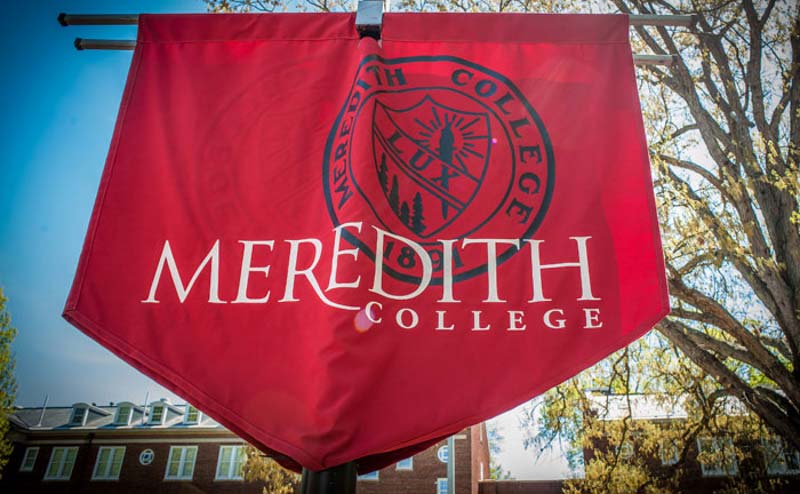“Knowing Better is Doing Better”: Criminology Week 2018
- By Sydney Cooper, ’19
- Published

The Meredith College criminology department hosted Criminology Week October 15-19. Law enforcement officers, prosecutors, human rights advocates, and criminal analysts came to Meredith to explain their roles in the justice system and what types of careers students could pursue in the field of criminology.
Criminal Analyst
Beverly Lewis from the Cary Police Department, talked about how statisticians work to calculate the amount and type of crime that took place in an area by reviewing crime reports from the previous years.
“The purpose of analysis is to provide rational predictions of the future,” explained Lewis. Law enforcement believes that by knowing what type of crime was committed, the victim type, and the area, law enforcement can better prepare and strategize on how to prevent further incidents.
Public Affairs Manager
Data gathering plays a large part in the non-confrontational roles in law enforcement. “Knowing better is doing better,” Donna-maria Harris of the Raleigh Police Department (RPD) explained when asked what it takes to make a successful police department.
As a public affairs manager for the RPD, Harris is in charge of communicating with the media and strengthening the relationship between the police department and the community. Harris’ visit was especially helpful to students interested in the communication side of criminology, since when law enforcement is discussed, most people tend to think about police, federal agents, and CSI.
Death Investigator
For students interested in pursuing a career in the areas of science and medicine within criminology, a death investigator came to talk about working for the Chief Medical Examiner’s office.
Death Investigator Jennifer L. Winner explained that there was nothing quite like “getting to a scene thinking one thing but finding something different.” Winner’s job focuses on determining the manner of death, how an injury or illness led to a death, and cause of death, or what illness or injury caused a death.
Activist
Advocacy was a significant theme of Criminology Week. Domestic violence and human trafficking served as this year’s major points of discussion. Sherry Honeycutt Everett, an attorney from the N.C. Coalition Against Domestic Violence (NCCADV), defined domestic violence as a pattern of coercive behavior in which one person attempts to control another in a relationship through threats or actual use of tactics, which may include physical, sexual, economic, emotional, verbal, and psychological abuse.
“Domestic violence really does affect everyone regardless of race, sex, gender, or economic status,” Everett said.
Students were encouraged to be careful if they suspect they or someone they know is in an abusive relationship as 75% of the murders of partners happen when the victim attempts to leave. Reaching out to the police or the NCCADV was highly encouraged by Everett, as members of the N.C. Coalition Against Domestic Violence are all trained in how to help survivors of abuse.
A career fair was also hosted at the Cate Center, allowing students to network and look at internships in the field of criminology. Criminology is a diverse field and offers students a large variety of career options, from law enforcement to statisticians, to technicians and counselors. Passion and a desire to help others is a driving force for all of the speakers and recruiters present at the fair, and it is the same passion that drives Meredith’s criminology majors.
News Director
316 Johnson Hall
(919) 760-8087
Fax: (919) 760-8330
PRINCETON REVIEW
U.S. NEWS
NICHE
3800 Hillsborough Street Raleigh, NC 27607-5298 | (919) 760-8600 Fax: (919) 760-8330 | © 2024 All Rights Reserved.